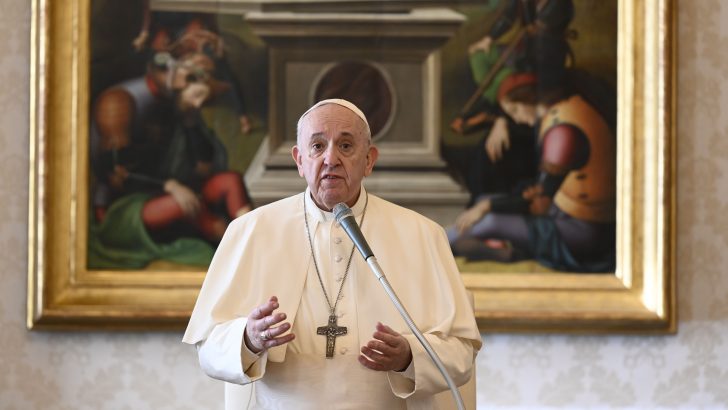Pope Francis said he was dismayed by Catholic communities and groups that claim to be working to improve church life, but attempt to do so without prayer, the Eucharist and unity with the rest of the church.
“At times, I feel a great sadness when I see a community that, with goodwill, takes a wrong path because it thinks it is making the church through gatherings, as if it were a political party,” the Pope said November 25 during his weekly general audience.
“The majority, the minority, what this one thinks of this or that or the other, (saying), ‘This is like a synod, a synodal path that we must take’.
He continued: “I ask myself, ‘Where is the Holy Spirit there? Where is prayer? Where is the community’s love? Where is the Eucharist?’ Without these four coordinates, the church becomes a human society, a political party. ”
While the Pope did not mention a specific country or situation, already in June 2019, he had written a letter to Catholics in Germany urging them to ensure that their “synodal path” was guided by the Holy Spirit with patience and was not simply a “search for immediate results that generate quick and immediate consequences but are ephemeral due to the lack of maturity or because they do not respond to the vocation to which we are called”.
Synodal path
The Catholic Church in Germany launched the Synodal Path in 2019. Scheduled to run for two years, it is debating the issues of power, sexual morality, priestly life and the role of women in the church.
Some German bishops are concerned about the process. In an interview published Sept. 17 by Germany’s Catholic news agency, KNA, Cardinal Rainer Maria Woelki of Cologne warned that the Synodal Path reform project could lead to a “German national church”.
In his audience talk, the Pope said that in order “to evaluate a situation, whether it is ecclesial or not, we must ask ourselves if there are these four coordinates: community life, prayer, the Eucharist and preaching.”
If one of those aspects is missing, he said, then the presence of the Holy Spirit is missing, which risks converting the Catholic Church into “a beautiful humanitarian association,” but “it is not the church”.


 Ruadhán Jones
Ruadhán Jones Pope Francis leads his general audience in the library of the Apostolic Palace at the Vatican Nov. 18, 2020. (CNS photo/Vatican Media)
Pope Francis leads his general audience in the library of the Apostolic Palace at the Vatican Nov. 18, 2020. (CNS photo/Vatican Media)